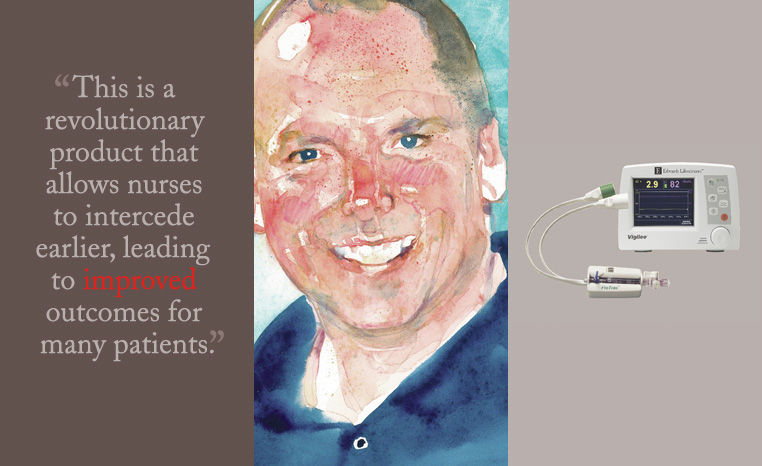Edwards Lifesciences 2005 Annual Report"


At University of Pittsburgh Medical Center Presbyterian
Shadyside, the team relies upon the Edwards FloTrac
sensor and PreSep catheter as two important components
of the hospital’s
End-Goal Directed Therapy (EGDT) protocol and nurse-driven
patient monitoring practices. According to Al Minjock,
RN, MSN, HRM, director of surgical critical care,
FloTrac and PreSep were recently used on an adult
cystic fibrosis patient who suffered from severe
sepsis and required mechanical ventilation while awaiting a double-lung
transplant. With the help of Edwards’ technologies,
the medical team was able to quickly manage the
patient’s
multiple hemodynamic challenges resulting in a
successful procedure for the patient, and was discharged
less than a month later.

Edwards developed the FloTrac sensor so clinicians could
less invasively monitor important hemodynamic performance parameters
in a greater number of patients. Edwards’ PreSep catheter
is used in managing patients with severe sepsis — the spread
of an infection to the bloodstream.

